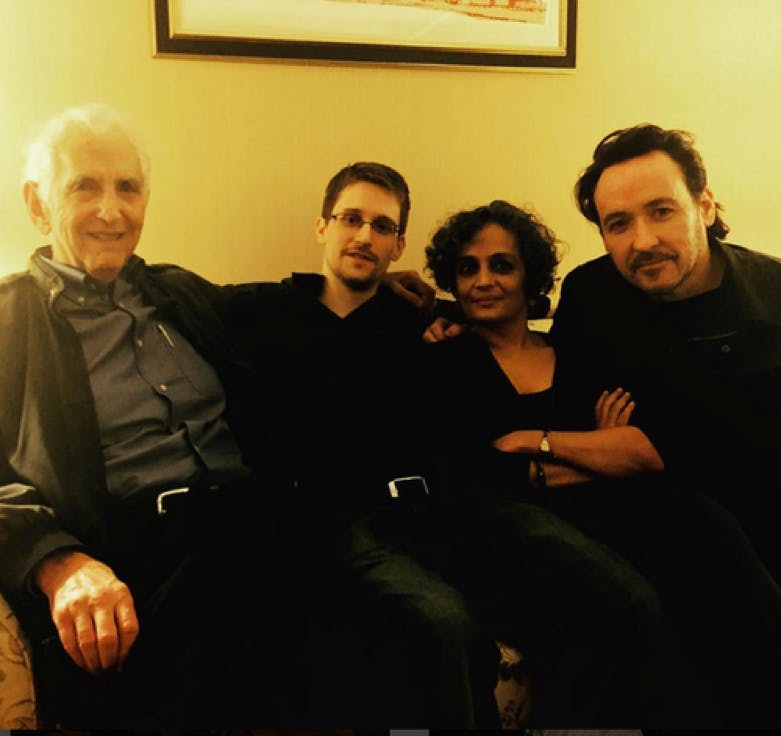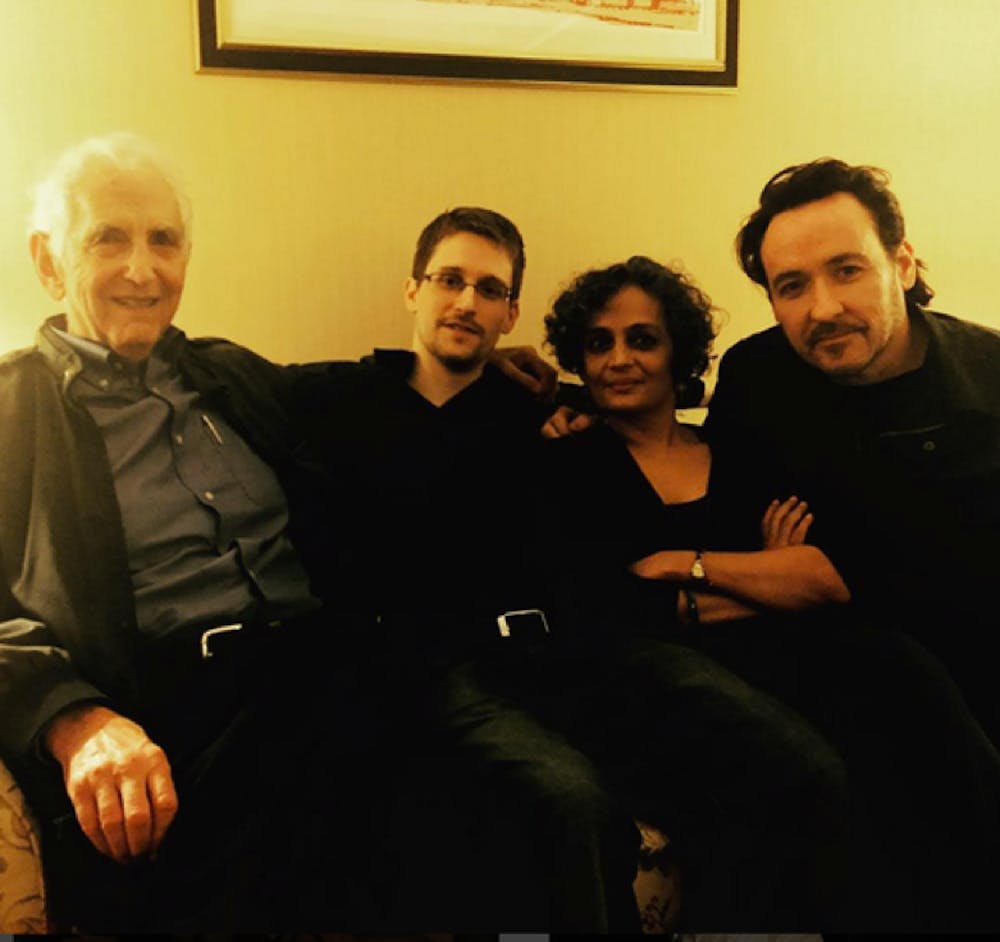Arundhati Roy and John Cusack's conversation with each other and with NSA whistleblower Edward Snowden gives readers extraordinary insight into government surveillance and the consequences of bringing that information to the public.
By Breanna Cooper
In June of 2013, the British newspaper The Guardian broke the story of Edward Snowden, a former National Security Agency (NSA) contractor who risked everything to tell the world that the United States had been collecting phone records and personal data of everyday citizens.
After leaking the story to The Guardian, Snowden began living his life as an American refugee, eventually finding asylum in Moscow, Russia. To some, he is a national hero who sacrificed his freedom to tell his fellow American citizens about the wrongdoings of the government; to others, he is a traitor that jeopardized national security.
It seems that everyone has an opinion on Edward Snowden.

So begins the book “Things that Can and Cannot be Said,” written by Arundhati Roy and John Cusack. Along with Daniel Ellsburg, who leaked the Pentagon Papers in 1971 exposing classified Pentagon studies in regards to the Vietnam War, the writing duo visited Moscow in 2014 to meet Edward Snowden. The book is a collection of essays and conversations that took place during their visit in Russia.
For anyone interested in the history of the United States, “Things” provides a detailed account of the history of government surveillance and the whistleblowers that have caused controversy over the years. At times, the book focuses more on the past than the current situations that Snowden faces as a refugee.
However, that’s the point.
Providing history, along with political and cultural theories provided by Roy and Cusack, “Things” helps readers to see the issue of government surveillance beyond Edward Snowden. Taking a step back from the current controversy over the NSA, readers are able to see the historical events that, for some, justify the United States government acquiring information on American citizens.
The best aspect of “Things” is the fact that the authors are not trying to be persuasive. Through essays and transcribed conversations, Roy and Cusack provide readers with their theories and ideas related to government overreach and national security. The morality and constitutionality of surveillance is discussed, with Roy quoting former Secretary of Defense Robert Mcnamara who asked, “How much evil must we do in order to do good?”
While significant historical and political insight is given to readers, “Things” does what every good piece of journalism strives to do; provide facts, insight, and allow the reader to make their own decisions. For this reader, this aspect made the book worth reading. It posed huge questions and provided the reader with the information to answer those questions on their own.
With issues as controversial as the NSA leak and the man behind said leak, it is important to give audiences a clear look at the issues at hand and let their opinions form from there. “Things” did just that.
An abrupt ending to the book mirrored the ongoing controversy that is happening within the United States. While Edward Snowden might not be able to return home any time soon, or ever, for that matter, “Things” gives readers a better understanding of the man behind the NSA scandal, his motives and the questions of morality and patriotism that surround the controversy.
Above all else, “Things That Can and Cannot be Said” inspires readers to question, which, despite what those in power may think, is never a bad thing.
Book Review: 'Things That Can and Cannot Be Said'

Heads up! This article was imported from a previous version of The Campus Citizen. If you notice any issues, please let us know.
(L to R) Ellsburg, Snowden, Roy, and Cusack in Moscow. (Photo courtesy of John Cusack's Facebook page.)




